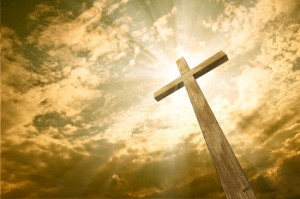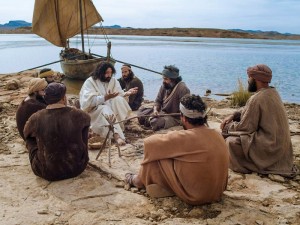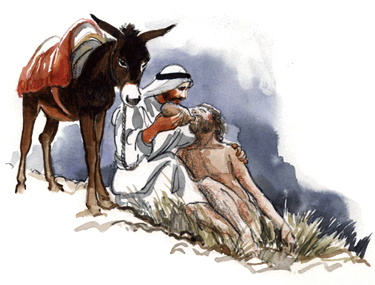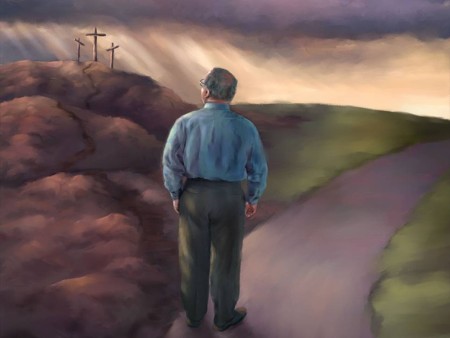
-22-09-2024-
Twenty-Fifth Sunday in Ordinary Time
Gospel : Mark 9:30-37
 vs.30 After leaving the mountain Jesus and his disciples made their way through Galilee; and he did not want anyone to know,
vs.30 After leaving the mountain Jesus and his disciples made their way through Galilee; and he did not want anyone to know,
vs.31 because he was instructing his disciples; he was telling them,
“The Son of Man will be delivered into the hands of men; they will put him to death; and three days after he has been put to death he will rise again.”
vs.32 But they did not understand what he said and were afraid to ask him.
vs.33 They came to Capernaum, and when he was in the house he asked them,
“What were you arguing about on the road?”
vs.34 They said nothing because they had been arguing which of them was the greatest.
vs.35 So he sat down, called the Twelve to him and said,
“If anyone wants to be first, he must make himself last of all and servant of all.”
vs.36 He then took a little child, set him in front of them, put his arms around him, and said to them,
vs.37 “Anyone who welcomes one of these little children in my name, welcomes me; and anyone who welcomes me welcomes not me but the one who sent me.”
*******************************************
We have four commentators available from whom you may wish to choose
Michel DeVerteuil :Trinidadian Priest,spesialist in Lectio Divina .
Thomas O’Loughlin: Prof of Historical Theology, University of Nottingham
Sean Goan:Studied scripture in Rome, Jerusalem and Chicago.
Donal Neary SJ: Editor of The Sacred Heart Messenger and National Director of The Apostlship of Prayer.
****************************************
Michel DeVerteuil
Lectio Divina with the Sunday Gospels
www.columba.ie
Textual Comments
Today’s passage is in two sections:
– a narrative which gives the context of the entire passage (verses 30-32);
– two teachings on humility, both are woven into dramatic narratives (verses 33-35 and 36-37) which flow from the previous teaching.
As usual, we are free to take each section separately, then we can see an inner logic between them.
The Narrative
St Mark gives a deeply moving account of Jesus at a new and decisive stage in his life’s journey. His glory days are over; the opposition has become more pronounced, he has decided that it is time to leave the relative safety of Galilee and go to Jerusalem where he will confront the powers of the nation, “the elders, chief priests and scribes” of last Sunday’s passage. So he begins his fateful journey, “making his way through Galilee,” as the text notes.
T his is a moment of truth then, not a time for miracles but for facing up to harsh reality. Speaking to large crowds would be inappropriate; it is the time for being alone with his faithful disciples and “instructing them” with his deep teaching.
his is a moment of truth then, not a time for miracles but for facing up to harsh reality. Speaking to large crowds would be inappropriate; it is the time for being alone with his faithful disciples and “instructing them” with his deep teaching.
We think of similar moments in our experience (or the experience of great people who have touched our lives).
The time for compromise passes, and the time for confrontation has arrived. Being “delivered into the hands of men” means laying oneself open to one’s opponents. The confrontation is public, there is no hiding from it.
We can identify with Jesus, the courageous leader who is fully conscious of the consequences of his decision to confront. He is now at peace with himself. He doesn’t have to work out problems of fear or hurt or resentment. He is therefore free to focus  on training those who will carry on the work after he is gone and will have to hand it on to future generations, like ours today.
on training those who will carry on the work after he is gone and will have to hand it on to future generations, like ours today.
We can also identify with the disciples. They are truly blessed to have a leader like Jesus. They will always look back on this time of spiritual formation with deep gratitude that they went through it. They will naturally feel some regret at how slow they were to understand what he truly meant.
The Teachings
The first teaching is on humility (verses 33-35), the disciples are unable to face the issues raised by Jesus. They are too frightened and (as we all do in such situations) they take refuge in arguing about unimportant issues – greatness, status and power.
Jesus on the contrary is unambiguous. His body language conveys the seriousness of the teaching. The text says that this happened, “when he was in the house”. It adds that the following happened, “when he sat down“; he then “called the Twelve to him“. He clearly wanted to speak seriously to them about a crucial point in his teaching.
A teaching on humility is very appropriate in the context of Jesus’ decision to go to Jerusalem. Only humble leaders who are not concerned about “who is the greatest” can face calmly the prospect of being “delivered into the hands of men“. They can then take what is offered to them and make the best of it.
The second teaching (verses 36-37) is also woven into a dramatic story and we must enter into the symbolism of the gestures. “Welcoming” by itself can be vague. We must fill it out with the details provided by St Mark. He “took a little child” and “set him in front of them” and “he put his arms around him.”
The expression “little child” can be taken literally. As often in the gospels however, we can give it a wider meaning. We can apply it to those who are “little” in any sense at all. These are society’s (or our community’s) drop-outs. They are what the bible calls “tax collectors, prostitutes and sinners“.
 The gospels have several teachings of Jesus on little children and each makes its own particular point, so we must focus on the angle being taken in the text before us. In this passage, the point Jesus is making is that leaders who “make themselves last of all and servants of all“ have the capacity to “welcome” (in the sense noted above) “little ones“. They approach them not as objects of pity, as “the less fortunate“. They are, rather, precious gifts sent by God, “the one who sent Jesus”. He has much to offer and to teach us through them.
The gospels have several teachings of Jesus on little children and each makes its own particular point, so we must focus on the angle being taken in the text before us. In this passage, the point Jesus is making is that leaders who “make themselves last of all and servants of all“ have the capacity to “welcome” (in the sense noted above) “little ones“. They approach them not as objects of pity, as “the less fortunate“. They are, rather, precious gifts sent by God, “the one who sent Jesus”. He has much to offer and to teach us through them.
Those who are concerned about who is “the greatest“ are not able to see the greatness of the humble people of the world. We must all find ourselves in this wonderful text. It is certainly addressed to us. If we can’t recognise ourselves in it, it means that we have not really accepted that it is directed to all. Yet this is clearly what it is meant to be.
Prayer Reflection
“The future belongs to those who have nothing to lose.” …Herbert Marcuse
Lord, we remember a time when we realized that being true to our values required that we come out of our obscurity and take a public position:
– quit a job,
– break a relationship,
– speak up before someone in authority,
– join a political party or a social movement.
Like Jesus, we knew that we would be delivered into the hands of men and would be put to death in some way.
We had to protect ourselves against pressure from outside
so we did not want anyone to know where we were,
and we concentrated on explaining ourselves to those closest to us.
They did not understand, and were afraid to ask questions,
but we sat calmly with them, called them to us and explained
that, for us, being great in the eyes of others was not worth arguing about;
the only important thing in life was to carry out the service you entrusted to us.
We thank you, Lord, that you gave us the grace to follow in the footsteps of Jesus.
“A great disaster reminds us of the big things in life that we forget
and the small things of which we have thought too much.” ...Nehru of India
Lord, there was a time when we were afraid to think of failure.
Like Jesus’ disciples, we preferred not to ask questions but focussed on being greater than anyone else.
Then one day we experienced death and resurrection:
– a cause we believed in collapsed and rose again;
– people in whom we had faith disappointed us, but we got to appreciate them better for who they were;
– we admitted a secret addiction to ourselves and to others, and felt free for the first time.
That was Jesus whom you had sent us, teaching us that life is a cycle of death and rebirth.
Now we give ourselves to the present, we welcome the little children you set in front of us and put our arms tenderly around them.
Thank you, Lord
Lord, send us Church leaders who make us conscious of how much energy we waste arguing with members of other Churches and religions as to which of us is the greatest;
who will sit down as our teachers, call us and tells us clearly that we are your greatest disciples to the extent that we make ourselves the last of all and the servants of all.
“The longer I live the more I see God at work in people who don’t have the slightest interest in religion.” …Dorothy Day
Lord, we thank you for the many times that you touch us through people we had looked down on.
You take them and set them in front of us and we see them in a new light;
we are so moved that we put our arms around them and welcome them as your messengers to us.
and welcome them as your messengers to us.
They make us aware that being great is so important to us that we spend our time on the road arguing about it.
They are the presence of Jesus, sitting down and calling us to him, reminding us that we are truly great when we are the servants of all.
Lord,
we thank you for Alcoholics Anonymous
and other organizations which follow their healing method.
Like Jesus, they call addicts to their communities,
to help them to present themselves not as the greatest but as the least of all,
set them in front of the others who then put their arms around them
and welcome them as your precious gift.
“The poor are the judges of the democratic life of a nation.”…The bishops of Brazil
Lord, our modern Western culture is interested only in the greatest
– good customers, those who draw crowds, winners.
We thank you that in many countries of the world
leaders of your Church are following in the footsteps of Jesus,
setting the little ones in the forefront, putting their arms around them
and reminding all that in welcoming them they welcome you.
*************************************
Thomas O’Loughlin
Liturgical Resources for the Year of Matthew
www.columba.ie
Introduction to the Celebration
Each week when we gather here we renew our commitment to being disciples:
to following the way of the Lord on our pilgrimage through life. And as a pilgrim people we have been listening to Mark during this year as he reminds us of the demands of discipleship.  Today we hear Mark reminding us as disciples that the core of the mystery we celebrate is that Jesus, the Son of Man was arrested, put to death, and rose again. This is the mystery of faith.
Today we hear Mark reminding us as disciples that the core of the mystery we celebrate is that Jesus, the Son of Man was arrested, put to death, and rose again. This is the mystery of faith.
But we also hear him warning us about how we can be distracted in our discipleship: instead of seeing this community as the group which must model the way God’s people should live, it can all too easily degenerate into being a group where people argue and compete for honours and position. We as disciples have to both be focused on the Lord and recognise how often we fail as disciples.
Gospel
This is a unit of teaching in Mark — we can see this in that it supposes the same locality and the same activity of walking along the road to Capernaum while talking and teaching — but it is made up of two elements:
(1) the so-called ‘second prediction of the passion’ (using this designation, the ‘first prediction’ occurred at 8:27-33); and
(2) the dispute about greatness.
But while splitting these verse into two like this makes great sense if one wants to study the gospels using the three synoptics together, it is less than useful if we want to hear the distinctive voice of Mark. For Mark these are not separate items of tradition just cut and pasted together, rather they are distinct lessons in what is the master-class on discipleship (today’s gospel opens a section of Mark’s gospel devoted to discipleship that runs to 10:31).
All the stories on discipleship are intended by Mark to correct false notions about discipleship: the first being that the Christ will be a triumphant figure in history — for Mark he is an historical failure who is arrested and put to death, but whose resurrection after three days is the hope of the Church. Mark has now abandoned — he is presenting this as Jesus’s open teaching to the disciples — the notion of the Messianic Secret, and so the disciples have to come to grips with the reality of the historical destination of discipleship: the cross.
 If the cross is the place to where discipleship leads, then the jockeying for position in an historical Jesus-run administration is all the more ridiculous — and so the second correction of false notions of discipleship. Mark’s staccato examples have an elegance lost in the gospel of Matthew and Luke: discipleship is about the cross, great discipleship means service, not rank or position.
If the cross is the place to where discipleship leads, then the jockeying for position in an historical Jesus-run administration is all the more ridiculous — and so the second correction of false notions of discipleship. Mark’s staccato examples have an elegance lost in the gospel of Matthew and Luke: discipleship is about the cross, great discipleship means service, not rank or position.
For the ecclesial contexts within which Mark preached this material on discipleship, see the homily notes below.
N.B. (Care should be taken in making any comment on the phrase ‘he took a little child’ as attitudes to children have so changed in recent centuries that it often produces a very false reading of this text and its parallels (Mt 18:2; Mk 10:15; Lk 9:47 and 18:17).
Our culture sees children as valuable and who symbolise innocence, purity, and humility. In the world of Jesus and his followers, the words for ‘child’ and ‘slave’ were interchangeable.
In the gospel, the child is a representative of the ‘no-body’, someone without dignity or worth. In fact, the same point could have been made by choosing a slave, or a domestic servant, or, indeed, a woman. Read in this light, the teaching on the disciple as ‘servant of all’ (panton diakonos) takes on an even sharper significance.)
Homily Notes
1. Is there ever a case where straight forward exegesis should form the content of the homily?
 The vast majority of modern preachers would argue that exegesis belongs in the classroom or is too boring for the average congregation: the homily should be lighter, inspirational, and more like a communications soundbite.
The vast majority of modern preachers would argue that exegesis belongs in the classroom or is too boring for the average congregation: the homily should be lighter, inspirational, and more like a communications soundbite.
On the other hand, it is the gospel reading that is the centre of the Liturgy of the Word and an important reason for the reform of the Liturgy of the Word and an important reason for the reform of the liturgy after the Second Vatican Council was to ensure a more prominent place for scripture in the liturgy. Hence the purpose of the homily is to explicate the readings as the Word of God – and this necessarily involves exegesis. Most of us find a middle way: a homily that tries to draw the gospel into our human situation but which is influenced by exegesis or, at least, does not fly in the face of what formal exegesis can tell us about the meaning of the text.
However, there is much to be said for occasionally preaching a homily that is a piece of exegesis: where the text can be explained without complex biblical background, and without a well-stocked larder of general knowledge about the scriptures, and where that exegesis will say something useful to an average person about their life, and where that exegesis helps bring out something distinctive about how one of the evangelists preached the gospel, because it was the richness of that variety that inspired the three-year cycle.
2. Today’s gospel is one that lends itself to a little bit of formal exegesis.
3. What does that gospel mean?
•Let us begin with a basic observation:
•What Mark, and each of the other evangelists, selected for their preaching was to a large extent determined by the information their audiences needed to live as proper disciples of Jesus.
•We see this in two ways in today’s gospel.
•First, over the last few months we have been reading each Sunday extracts from Mark’s gospel. One of the distinctive things about his gospel is that very often after Jesus has performed a miracle or a healing in front of all the people, there is little command that ‘He wanted them to tell no one.’ What Mark was saying by this little device was that people should ‘not‘ think of Jesus just as a healer, or a teacher, or one who could perform miracles. These miracles were exceptional glimpse of how God loves us: to know Jesus is to know the one who was arrested, put to death, and who now is living in the church. To think only of the nice bits, was, for Mark, to get the whole picture wrong. Only when you looked at teaching and healing and dying and rising, could you say you knew the story of Jesus.
•Look at the contrast with today’s gospel: we are clearly told that he is with his own people away from the crowds: ‘He did not want anyone to know, because he was instructing his disciples.’ And Mark sees what he is preaching to the churches as the same as what Jesus was telling the first disciples moving along the road. Now what was this inner teaching that Mark wanted his audience to know? To know who Jesus is, the very kernel of our faith, one has to come to grips, just as his first disciples had, with this:
•’The Son of Man will be delivered into the hands of men; they will put him to death; and three days after he has been put to death he will rise again.’
•Mark wants there to be no confusion about the central mystery in the communities where he has been preaching: this is what no disciple can be left in any doubt about.
•The second way we see him presenting the teaching of Jesus in a way that it made sense to the first churches is in the rest of today’s gospel. It is a fact of human life that we are competitive and there are people who want to be the VIPs in any situation. We may talk about ‘fraternity‘ and ‘equality‘ but we all can identify the sentiments of the pigs in Animal Farm: ‘All animals are equal, but some animals are more equal that others.’
1• The radical message of Jesus was that each of us are children of the Father, hence we are brothers and sisters. As disciples, we are to love one another, share our gifts with one another, and our central common action is this gathering where we are each given a seat at the Lord’s table.
The radical message of Jesus was that each of us are children of the Father, hence we are brothers and sisters. As disciples, we are to love one another, share our gifts with one another, and our central common action is this gathering where we are each given a seat at the Lord’s table.
Yet since the very beginning there have been people who do not like this aspect of discipleship, who want to preserve their worldly status within the church, and those within the church who want to compete for position as if this were just some other club. We know that such disputes were tearing apart the community in Corinth about the time that Mark wrote. We know that it still happens, and we can suspect that it happened in several of the churches where Mark preached. His preaching is by example: you may be full of factions over who is the leader, and which people are the most significant. Well, it was so also in the first group; now listen to what Jesus said when he heard of these arguments. Now go and take that message to heart.
2•The test of discipleship is service to one another, and being willing to welcome those who are poor, needy, and from whom you can expect no return. This is typified in Jesus setting the child before them as an example.
3• Here we have a little bit of the earliest preaching: we still need to hear it to help us note precisely what is the kernel of the mystery we celebrate, and to be reminded just how easily our arguments within the church can be at odds with the vision of the new humanity Jesus preached.
4.Having given an exegesis, people need to be able to absorb the text again in a more enriched form. So pause for a moment, and then announce:
•We shall now hear that gospel read again, but this time we should be listening out for what Mark wanted his first audience to hear — and which still today we need to hear.
Then read the text aloud at a slightly slower pace than usual — or, better still, get someone else to read it aloud while you sit down and listen.
5. Lastly, it is good to consider this description of the difference that exegesis makes: it is the difference between ‘hearing’ and ‘listening out’!
**********************************
Sean Goan
Let the reader understand
www.columba.ie
Gospel
 Following from last Sunday and the first passion prediction we come now to the second time in Mark when Jesus speaks about what awaits him in Jerusalem. However, the reader of the gospel is invited to see in these not some kind of proof that Jesus can tell the future but rather an attempt by Jesus to persuade his disciples that they need to change their attitude towards him and his ministry.
Following from last Sunday and the first passion prediction we come now to the second time in Mark when Jesus speaks about what awaits him in Jerusalem. However, the reader of the gospel is invited to see in these not some kind of proof that Jesus can tell the future but rather an attempt by Jesus to persuade his disciples that they need to change their attitude towards him and his ministry.
It is clear that the disciples are happy to be with Jesus as their long awaited and triumphant Messiah but they are failing completely in that Jesus is not interested in such discipleship. He wants them to learn the way of the kingdom which is the way of the cross. This is not the path to glory as human beings understand it but to humble service and love. In taking the child as an example, he is saying to his followers,
‘ Be concerned for those who can offer you nothing in return, the powerless and the vulnerable. When you welcome them you welcome the true Messiah and the God who sent him.’
Reflection
Today’s readings are dealing with ‘wisdom‘ but from different perspectives.
In the first, people who are caught up in themselves want to be rid of the wise person because his life points up the emptiness of their own.
In the second, we see the consequences of choosing to live by the wisdom of God. The wise person is not necessarily rich, popular or successful and while these maybe the values which are esteemed in our modern culture they do not compare with being at peace with ourselves. This is the fruit of wisdom and is a gift to be prayed for with all our hearts. In the gospel, Jesus offers us the wisdom of the cross which focuses on our call to become like Jesus, the last of all and the servant of all.
********************************************
Donal Neary SJ
Gospel Reflections for Sundays of Year B
www.messenger.ie/bookshop.
The War Inside
We’ve had a lot of war- stories and histories in recent years, – but James talks of another battlefield: wars of good and evil and conflicting desires within ourselves. In every war there is the evil fighting in the souls of the generals. Same with ourselves — good things emerge to be done but we allow other less good excuses take over
– visit someone sick but there is a match on;
– Help a neighbour but there’s a party planned;
– visit the parents and something else happens,
– go to Mass and the sun comes out and we go to the beach or it rains and we might get really wet
Desires to control people, greed, sexual exploitation of young and not so young, we know more from our own experience. Big time greed could have started with a fight over ice-cream at home, and somebody always getting their way at the expense of others.
Jesus’ saving love can help us bring out the best in ourselves. His cross is our peace – within ourselves and within nations. This is the reconciliation Jesus promises from the cross…peace within us and peace among us.
The apostles got into a row who is the greatest. They wanted to follow Jesus but something else took over.
Can we bring into ourselves the best of the child Jesus praises, and find God –
the Father whom we trust,
happy to rest in the regard he has for us, with no need to worry about who is the greatest!
With every inbreath, breathe in God’s love and allow it fill your being.
Heart of God, heart of Jesus, I place my trust in you.